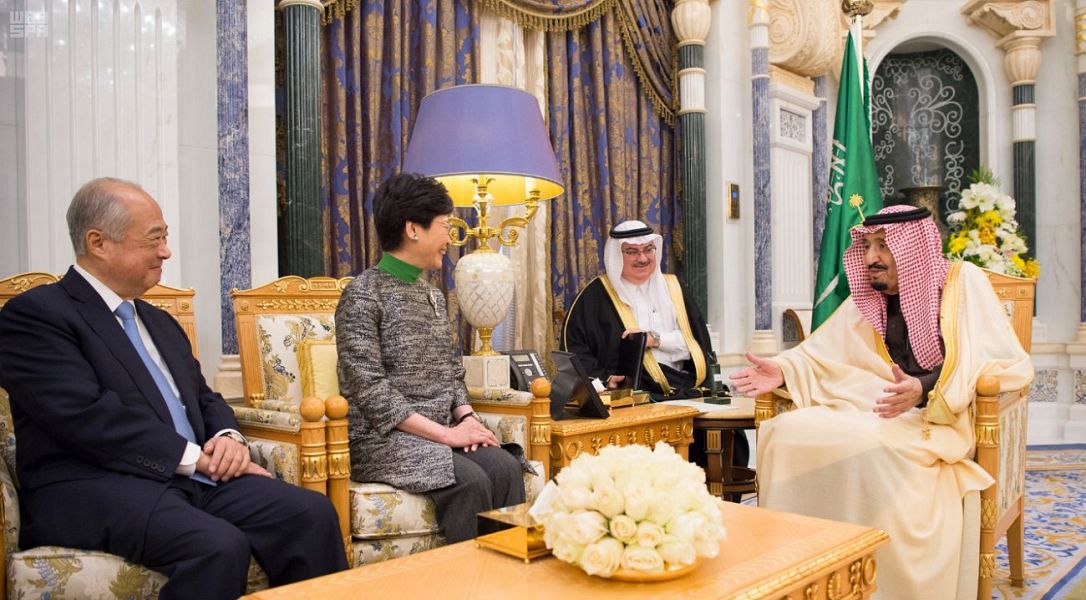
The protests in Hong Kong have been ongoing for more than six months. It all started very peacefully, with protesters taking to the streets to demonstrate against an extradition law that would have allowed Hong Kong citizens to be handed over to mainland China.
In those early days, everyone, including Hong Kong establishment figures such as senior businesspeople, took to the streets. They worried that the new law could be used by Beijing to exert undue influence over businesses.
The territory’s Chief Executive Carrie Lam waited too long to react, offering postponement of the bill’s implementation rather than unequivocal withdrawal. When the bill was finally abandoned, it was too little, too late. Protesters started to advocate for more democracy and the resignation of Lam. As so often, events developed a dynamic of their own. The protests became increasingly more violent and the positions more intransigent on both sides.
Recent developments bring into question the one country, two systems regime under which Hong Kong’s Basic Law (its constitution) operates. The system was initially devised by Deng Xiaoping to allow for Hong Kong to adhere to its free market economy and grant certain civil liberties for 50 years after the handing back of the territory by the UK to Beijing in 1997.
This made sense from the perspective of both Britain and the People’s Republic of China. The UK government and Hong Kong Governor Chris Patten could feel they had ensured civil liberties and democracy of sorts. Hong Kong’s “capitalist” system served Beijing’s strategy for economic development well — as did its stock market with access to international capital markets. In 1997, the size of Hong Kong’s economy was 18 percent of China’s. The latter’s economy has multiplied by 14 times since then, which leaves Hong Kong’s relative economic size at just 3 percent of the mainland’s. The Shanghai Stock Exchange has also gained global significance.
This does not mean that Beijing has lost interest in Hong Kong or does not see the territory as potentially useful. It is just a matter of degree of usefulness reflected in its relative economic power. Alibaba this week raised $11 billion in a Hong Kong stock sale. China also plans to develop the Guangdong-Hong Kong-Macau Greater Bay Area into an economic cluster to rival the San Francisco Silicon Valley powerhouse. In both instances, it is China and its companies that are firmly in the driver’s seat.
Hong Kong’s usefulness goes a long way to explaining why Beijing has been patient so far. However, the plans for the Greater Bay Area and the fact we have reached half-time in the one country, two systems regime explain why President Xi Jinping and his government are losing patience.
Indeed, the situation in Hong Kong is spinning out of control and Beijing is starting to assert its authority. When Hong Kong’s High Court ruled earlier this week that Lam’s ban on face masks for protesters violated the Basic Law, it took less than 24 hours for the Chinese government to respond, abrogating the High Court’s jurisdiction. Beijing asserted that the Basic Law was within the sole purview of the National People’s Congress.
At some stage, Beijing’s patience will run out entirely. We can then expect draconian laws to be in full force. Protesters can, for instance, face up to 10 years in prison if they are classified as rioters.
Meanwhile, the costs of the demonstrations are starting to mount in the economic as well as the diplomatic sphere. Hong Kong’s economic growth is expected to slow to 0.3 percent in 2019, which compares to 3 percent last year. Swiss watchmakers are complaining that the territory’s turmoil has cost them 10 percent of sales. Other luxury goods manufacturers also complain about the gradual descent into chaos of one of the world’s temples to conspicuous consumption. The territory’s airline, Cathay Pacific, produced lackluster interim results in August and we can expect the financials to deteriorate further in line with the many protests and blockades of the Chek Lap Kok airport. Chinese and other airlines also culled flights to the territory, further undermining Hong Kong’s status as a major economic center.
The situation in Hong Kong is spinning out of control and Beijing is starting to assert its authority.
Cornelia Meyer
Tempers have been flaring on the diplomatic front too. British Foreign Secretary Dominic Raab summoned the Chinese ambassador to the Foreign Office over the alleged torture of an employee of the UK’s consulate in Hong Kong. This was met with outrage in Beijing, which views criticism regarding the Hong Kong situation by foreign governments as meddling. The UK is a particular thorn in Beijing’s side because it claims interest over what happens in its erstwhile territory, while the latter denies all legitimacy of the UK’s “moral authority” based on its legacy.
The US Congress overwhelmingly passed a pro-human rights bill for Hong Kong protesters, as well as an export ban on certain munitions to the territory. Xi’s reaction was incandescent, to put it mildly. This spat could not have come at a worse time for President Donald Trump, who is trying to clinch the “first phase” of his trade deal with China.
While many may have sympathies with the protesters, the fact that the demonstrations have spun out of control and turned violent is not helpful. Recent events may well undermine what the demonstrators taking to the streets tried to accomplish in the first place — namely increased civil rights for citizens of Hong Kong and guarantees regarding the one country, two systems status quo. It looks like both have been eroded in Beijing’s eyes over the last few months.
Cornelia Meyer is a business consultant, macroeconomist and energy expert. Twitter: @MeyerResources
Disclaimer: Views expressed by writers in this section are their own and do not necessarily reflect Arab News" point-of-view












